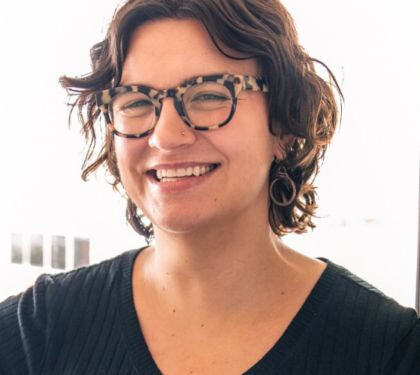AFT Provides 14,000 Pounds of Free Cover Crop Seed to Farmers in Massachusetts
The Massachusetts Coordinated Soil Health Program (MCSHP), a project of American Farmland Trust, Massachusetts Department of Agricultural Resources (MDAR), NOFA/Mass, and UMass Amherst, is focused on building a collaborative soil health program for the state of Massachusetts. While MDAR is a partner of MCSHP, they are also the primary funder for the project. With an initial focus on conventional and organic dairy and vegetable farmers, the program has already built a strong advisory committee of farmers, service providers, and other leaders in the soil health community. MCSHP has also collected data on current soil health practices from 155 farmers across the state. This information will lay the groundwork for how the program moves forward.
The cover crop seed one month after being broadcast. Photo courtesy of Todd Miles.Farmers who participated in the Producer Survey were given the opportunity to pick up a 50 lb. bag of cover crop seed to use in their fields. Two mix options were offered (each in both organic and non-organic seed) a partially over-wintering mix and a winterkill mix. The overwintering mix contained some winterkill species (tillage radish and oats) for a quick pulse of fall biomass, plus crimson clover and winter wheat (crimson clover overwinters in milder winters in MA, and the winter wheat will reliably regrow in spring). The winterkill mix was an oats peas and tillage radish mix and is the same mix that is being used in two different graduate research projects on cover crop mixtures at the UMass Research Farm. The Massachusetts Coordinated Soil Health Program has distributed 14,000 pounds of cover crop seed to farmers in Western Massachusetts.
“This cover crop seed came at the perfect time. I was just starting to figure out my cover crops for the fall and hadn’t ordered any yet,” said Tristram Keefe from Urban Farming Institute. Pictured above with his cover crop seed.They have held five different distribution events so far at partnering farms, with seed reserved for farmers who signed up in advance and some additional seed available for farmers who are interested and willing to complete the Producer Survey. One distribution took place at the UMass Summer Field Day, an educational event demoing the new no-till transplanter and a variety of other crops and soil health research in process at the UMass Research Farm. Attendance was high and farmers were excited to be able to learn about cutting-edge strategies and research on crop production and soil health, while also walking home with cover crop seeds they could integrate immediately.
“There are so many types of cover crops available to farmers, and I find that producers are experimenting widely with varieties, seeding rates, timing, and termination methods,” said Caro Roszell, New England Soil Health Specialist. “Our mixes were designed by our Soil Health Advisory Committee with primary input from Dr. Masoud Hashemi of UMass, who is a regional expert in cover crops. This free seed distribution was intended to give farmers an opportunity to try something that they may not have tried before, and to save money on their cover crop seed purchase for the year. I’m looking forward to following up with everyone in the spring to see how the mixes worked for them.”
In addition to distributing 14,000 pounds of cover crop seed, the Massachusetts Coordinated Soil Health Program has also collected over 60 soil tests from 29 different farms across the Commonwealth, purchased a no-till transplanter that farmers will be able to rent to try on their farm, and held multiple on-farm educational events focused on reduced tillage practices.
As the effects of climate change continue to impact our working lands, providing resources like free cover crop seed mixes can help offset some of the costs of adopting regenerative agricultural practices, while giving farmers an easy way to try something new.
Thanks to Caro Roszell for contributing to this article.




